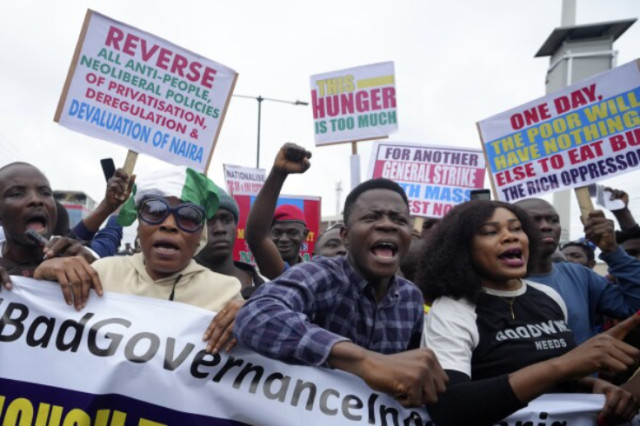Zimbabwe police arrested 18 activists who took part in the protest demonstrations for the release of the main opposition leader, ahead of the regional summit.
The government also warned of a crackdown on protests.
The fresh protests loom in Venezuela over disputed election.
The arrests come as Zimbabwe prepares to host the Southern African Development Community (SADC) summit on August 17.
Four of the activists were hauled off a plane at the Harare international airport on Wednesday, Zimbabwe Lawyers for Human Rights (ZLHR) said.
Another 14 were arrested in the small northwestern town of Kariba, the rights lawyers said on X.
They were charged under public disorder laws after taking part in protests demanding the release from detention since June of opposition leader, Jameson Timba.
Zimbabwe’s opposition has faced a wave of arrests after disputed August 2023 elections in which President Emmerson Mnangagwa’s ZANU-PF — in power since independence in 1980 — won a majority in parliament.
Timba, the interim head of the opposition Citizens Coalition for Change (CCC), was arrested at his home on June 16 with more than 70 other people. They were accused of participating in an unlawful gathering.
The four activists arrested in Harare were preparing to fly to the western town of Victoria Falls to attend the annual African Philanthropy Conference, ZLHR said.
Among them was teacher’s union leader Robson Chere who was “visibly tortured & in severe pain”, it said.
Also in the group was human rights activist Namatai Kwekweza, recipient of a 2023 prize awarded by the pro-democracy Kofi Annan Foundation.
The foundation said it had received credible reports that Kwekweza and the others “were held incommunicado and tortured for several hours before being handed over to the police.”
“We call on the authorities to follow due process and ensure that all of Namatai and her colleagues’ civil and political rights are fully respected,” it said on X.
Home affairs minister Kazembe Kazembe accused the opposition of pushing for demonstrations around the time of the SADC summit to provoke a “heavy-handed response” to attract international attention.




















